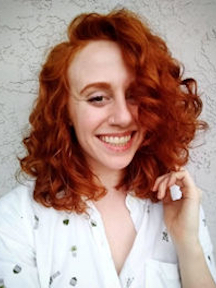By Ryan Maher
Her anticipation for the ΦBK Northern California Association’s forthcoming Asilomar Conference has its roots in a spring banquet.
Ryane Logsdon (ΦBK, University of Rochester), a doctoral candidate in the Animal Behavior Graduate Group at UC Davis, had received a graduate scholarship from ΦBKNCA. The honorary banquet for the scholarship awardees in May introduced her to committed fellow scholars in widely different fields. Each discussed their work, broaching topics as diverse as early 20th century Chinese fiction and the effects of DNA modification in meningioma development.
“Hearing the other scholars speak there was really fascinating,” Logsdon said. “I imagine that the speakers at [the Asilomar Conference] will be just as broad and just as interesting.”
Logsdon herself will speak at the 34th annual Asilomar Conference, to be held at the Asilomar Conference Grounds outside Monterey, California, over the weekend of February 14, 2020. The conference, which is ΦBKNCA’s cornerstone event, gathers a slate of speakers from the sciences, humanities, and arts to present intriguing and thought-provoking topics to a receptive audience of Phi Betes. As Deirdre Frontczak, ΦBKNCA’s Asilomar chair, described it, “The idea is to challenge us intellectually, but in a way that’s exciting and does not exclude the non-experts in [a given] field.”
What will Logsdon contribute to the proceedings? Her presentation, “Robots, Burlap, and Habit-Mapping: Using Technology to Study Animal Communication,” will cover her dissertation research and the novel technology used to conduct that research.
Logsdon’s work is within the field of sexual selection. “My dissertation research aims to understand how males’ courtship behavior changes in response to changes in the social environment (the presence and behavior of others) and the structure of the habitat,” she explains on her website. “To best investigate these behaviors, I use a free living population of greater sage-grouse (Centrocercus urophasianus) in Wyoming as a model system.”
To obtain the data, Logsdon’s lab, headed by Dr. Gail Patricelli, employs sophisticated technologies, including a biomimetic, remote-operated robotic sage-grouse. “My research involves conducting experimental manipulations of courtship encounters in grouse, and measuring behavioral responses to our treatments,” she writes. “Using fine-scale, 3-D renderings of the grouse’s mating grounds, we can quantify relevant habitat metrics and relate these measurements to courtship behaviors.”
“I think my work is pretty unique and probably not research [that] most people know happens,” Logsdon said. “The public generally has [little] idea of what field science actually looks like and what we do.” She is confident that her work will appeal to the membership in attendance. “And the birds themselves are pretty cool; they’re very weird. They’re native to North America, and my presentation will definitely have video showing [them].”
Frontczak agrees in the material’s appeal. She selected Logsdon to present at Asilomar based on her conduct at the honorary banquet. “I listen[ed] carefully to those brief talks [that each scholarship awardee gave], as they let me know a) who is a confident, capable and engaging speaker; b) who has a topic that would be interesting to a broad cross-spectrum of our members; and c) who is able to convey a complex topic succinctly, in language that is accessible to a non-academic audience,” Frontczak said.
Participation in the conference also gives Logsdon the opportunity to demonstrate the fruit of ΦBKNCA’s investment in her. Although her field research is complete, the funds from the scholarship allow her to spend the fall term devoted to completing her work without needing to teach. She says that, through her presentation, she is keen to “show what the scholarship is supporting.”
“We’re at a real crux about truth, especially nationally,” she said. “The continued support of all sorts of sciences, including the basic biological science research that I lean toward, I think is going to continue to be vitally important. Having an organization with such national reach and influence like Phi Beta Kappa supporting projects like [mine] can only do good to help enhance the missions and goals of science, which is really to understand the world and learn how to make it better.”
Registration for the Asilomar Conference is open to all ΦBK members through December 10. Photos of Asilomar 2019 can be found here.
Ryan Maher is a recent graduate of UC San Diego, having studied history, literature, and German. He was inducted into the Sigma of California chapter of Phi Beta Kappa in 2018. He is currently developing himself as a writer of nonfiction and fiction.




